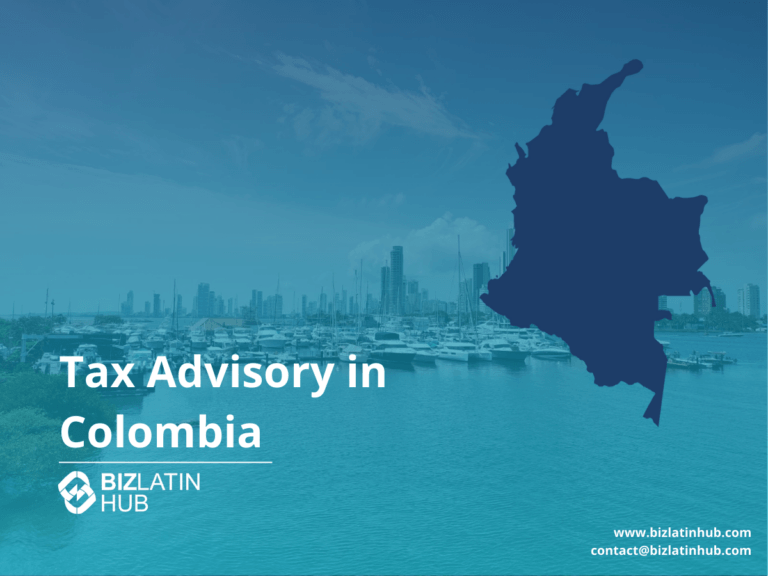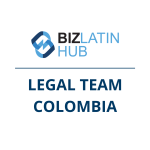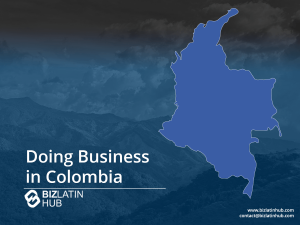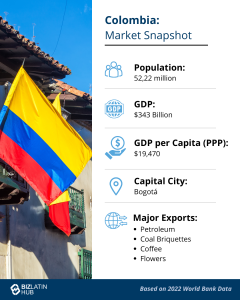Choosing the right corporate structure is a crucial step when incorporating a company in Colombia, as it lays the foundation for your business success. With its business-friendly environment and growing appeal to foreign investors, Colombia offers immense opportunities for growth. Collaborating with local experts ensures your business is strategically positioned to capitalize on this dynamic market. At Biz Latin Hub, we provide the knowledge and support you need to navigate legal complexities and confidently embark on your business journey.
Key Takeaways
| What are the common legal entity types in Colombia | Simplified Stock Company (SAS). Limited liability company (LTDA). Corporation (SA). Branch Office. |
| What is the most common Colombian business entity? | The Simplified Shares Company (S.A.S), or Sociedad por Acciones Simplificada, is the most common business entity in Colombia. Its popularity stems from its speed, flexibility, and investor-friendly features, which suit both domestic and foreign businesses. |
| What are the primary considerations when choosing a business entity in Colombia? | Ownership Structure. Tax Efficiency. Profit distribution. Transfer Pricing. Compliance. Flexibility. |
What are the Most Common Types of Legal Structures in Colombia?
The most common types of companies in Colombia are:
- Simplified stock company (SAS).
- Limited liability company (LTDA).
- Corporation (SA).
Each will be discussed in more detail below.
Generally speaking, there is no minimum capital contribution required to incorporate a commercial company in Colombia – this is set by the shareholders or partners. Following the liquidation of the company or capital reduction, foreign investments can easily be repatriated. Additionally, if certain capital requirements are met, investors are eligible to apply for a Migrant type of visa.
The main steps to incorporate a company in Colombia include:
- Formalization of company bylaws.
- Application for a NIT (company tax ID number).
- The opening of a Colombian bank account.
Below are each of the types of companies and their main characteristics.
1. Simplified Stock Company (S.A.S)
The S.A.S is the most common type of legal entity in Colombia and is popular within the business community for businesses large and small. Compared to other types of legal structures in Colombia, it has been praised by investors for its flexibility, specifically regarding the incorporation process and the large freedom afforded to shareholders to establish their own terms and conditions.
A large advantage of a simplified stock company is the ability to make the articles of incorporation a private document. Other key characteristics that distinguish a SAS include:
- Only (1) one shareholder (either a natural or legal person) is required, with no maximum limitation.
- Liability limited which equals the amount of the company’s equity.
- The social purpose may be left undefined, allowing the company to participate in almost any business activity.
- No requirement for a board of directors.
2. Limited Liability Company (LTDA)
Under a Colombian LTDA, a partner’s liability is limited to the amount of the capital contribution (unless otherwise stipulated by the company bylaws), and partners are not liable for the payment of debt. The key considerations of an LTDA include:
- Minimum of two partners with no more than 25.
- Partner contributions shall be paid in full upon incorporation of the company.
- Typically must be incorporated by a public deed. However, the document can be kept private if:
- The company has fewer than ten employees OR
- The company has assets below 500 times the minimum monthly wage in Colombia (approximately USD$140,000).
- The social purpose must be defined, limiting the company’s commercial activities.
- No requirement for a board of directors.
3. Corporation (S.A.)
Among the types of legal structures in Colombia, a corporation is another option to consider, especially if dealing with a larger number of shareholders. Under a corporation, the shareholder’s liability is limited only to the amount of the shareholders’ equity, except if fraud is committed. The important aspects of a corporation include:
- Minimum of five shareholders, none of which can have more than 95% of the outstanding capital stocks.
- Just like an LTD, this company is typically incorporated by a public deed. However, the document can be kept private if:
- The company has fewer than ten employees OR
- The company has assets below 500 times the minimum monthly wage in Colombia (approximately USD$140,000).
- The social purpose must be defined.
- The corporation must have a board of directors.
Our recommendation: Simplified Stock Company (SAS) offers a streamlined and efficient incorporation process, making it attractive for foreign businesses seeking to establish a presence in Colombia. In addition, SAS entities are subject to simplified corporate governance requirements compared to other legal entity types, making them a practical choice for foreign investors.
Alternative Option: Establish a Branch Office of a Foreign Company
Opening a foreign branch office could be an attractive option for a company that has its head office (Casa Matriz in Spanish) headquartered in another country. Colombian legislation recognizes foreign branch offices as an extension of the parent company, so branches and the parent company are viewed as the same legal entity. Key documentation required to establish a foreign branch office include:
- Certificate of incorporation document and legal representation of the parent company
Authorization of a representative to act on the company’s behalf by the power of attorney Bylaws of the parent company
Each of the legal entities discussed has its advantages and disadvantages. SASs are the most popular among investors due to their flexibility and ability to keep their articles of incorporation private. Limited liability companies and corporations are more traditional routes.
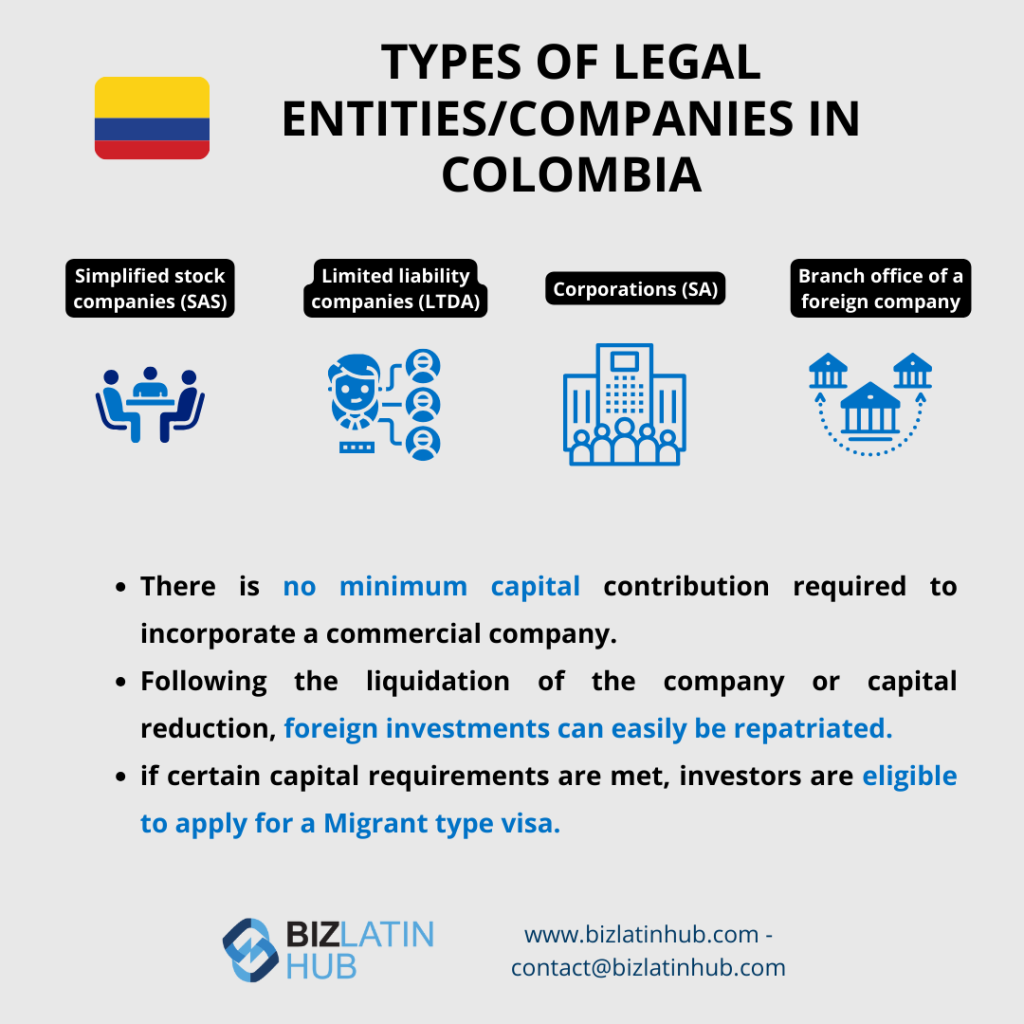
Key Considerations When Choosing an Entity Type in Colombia
The key considerations when deciding on which is the best entity type in Colombia are the following:
Ownership Structure
Determine whether the chosen entity allows full foreign ownership or requires local partners, as this varies by sector in Colombia. Sectors such as defense, agriculture, or mining often have specific restrictions or quotas favoring local involvement. Understanding these limitations will help you align your business structure with local regulations and ensure long-term operational stability.
Tax Efficiency
Analyze the effects of Colombia’s corporate tax rate, set at 35%, and the VAT, which stands at 19%, on your profitability and cash flow. Explore opportunities to lower tax burdens by qualifying for incentives like free trade zone benefits, which may include reduced tax rates or customs advantages. Proper tax planning is essential to optimize costs while remaining compliant with local regulations.
Profit Distribution
Consider the impact of Colombia’s taxation framework on profit distribution. Corporate tax at 35% applies to company profits, while dividend taxes, which range between 0% and 20% depending on thresholds, further reduce shareholder returns. Plan repatriation strategies carefully, as double taxation treaties with certain countries may offer tax relief. Clear strategies ensure that funds are transferred efficiently while minimizing tax burdens.
Transfer Pricing
Comply with Colombia’s strict transfer pricing regulations for cross-border transactions to avoid financial penalties or increased audit risks. Transfer pricing rules require companies to document and justify transactions between related parties, ensuring that they reflect market values. This is especially critical for businesses engaging in import/export activities, intellectual property licensing, or intercompany loans. Prepare transfer pricing documentation and reports annually to demonstrate compliance.
Compliance
Prepare to meet Colombia’s rigorous compliance requirements. Large companies must adopt International Financial Reporting Standards (IFRS) for financial statements. Annual tax filings are mandatory, and statutory audits are required for entities surpassing revenue or asset thresholds. These obligations may increase administrative efforts and costs but are crucial to maintaining legal standing in the country.
Flexibility
Select a business structure that provides adaptability for future needs. For example, a simplified stock company (SAS) offers flexibility for ownership changes, capital injections, and operational restructuring. This is critical in Colombia’s dynamic regulatory and economic environment, where rapid changes may necessitate adjustments in your business model or operations.
Note: Our recommendation based on experience would in most cases to incorporate a Sociedad por Acciones Simplificada (S.A.S) company in Colombia, which is similar to a US Limited Liability Company (LLC).
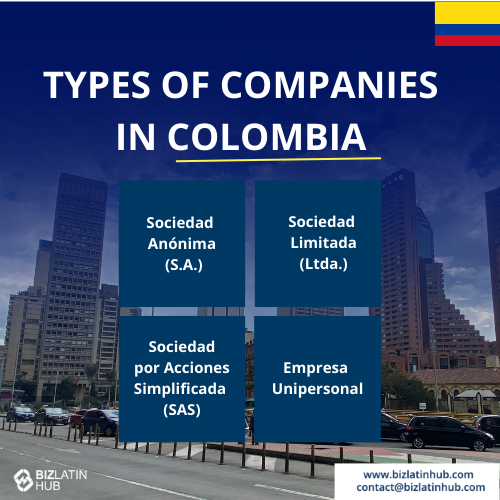
FAQs on Types of Legal Structures in Colombia
1. Can a foreigner register a company in Colombia?
Yes, foreign nationals can register a company in Colombia. The process involves complying with specific legal requirements and regulations set forth by the Colombian government.
2. What type of legal entity is recommended in Colombia?
The recommended legal entity in Colombia is the Simplified Shares Company (S.A.S), known as Sociedad por Acciones Simplificada. This legal structure offers a combination of speed, flexibility, and investor-friendly features, making it an ideal choice for both domestic and foreign businesses.
3. How do I create a company in Colombia?
Creating a company in Colombia involves several steps, including selecting a legal structure, registering with the Chamber of Commerce, obtaining a tax identification number (NIT), and fulfilling any additional requirements based on the chosen legal entity.
4. What is an LLC in Colombia?
In Colombia, there is no specific legal entity equivalent to the Limited Liability Company (LLC) commonly found in other jurisdictions. However, the closest equivalent would be the Simplified Shares Company (S.A.S), offering limited liability protection to its shareholders while allowing for simplified management and operations.
5. What is the business structure of a Simplified Shares Company (S.A.S) in Colombia?
The Simplified Shares Company (S.A.S) in Colombia offers a combination of speed, flexibility, and investor-friendly features that make it a suitable choice for both domestic and foreign businesses. This legal entity provides limited liability protection to its shareholders and allows for streamlined administrative procedures, facilitating ease of operation and growth.
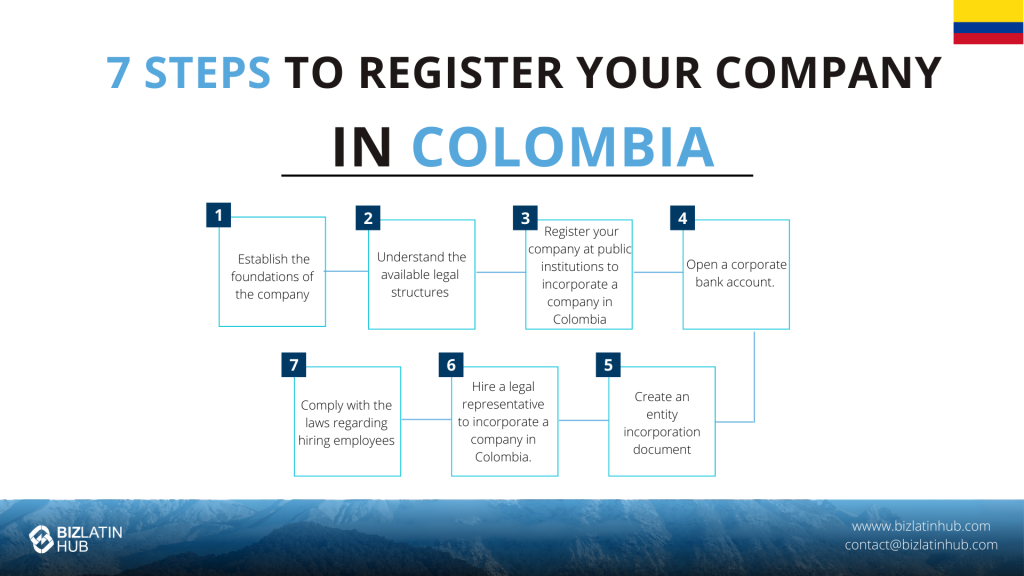
Why Invest in Colombia?
Colombia presents a wealth of attractive industries, strengthened by significant foreign direct investment (FDI) across diverse sectors. These opportunities are accessible through various legal structures available in the country. A rapidly expanding mining sector has played a key role in supporting Colombia’s renowned emerald industry, which contributes over 2% to the nation’s GDP and attracts investors from around the world.
In addition, Colombia’s expansive network of free trade agreements (FTAs) and its strategic location with access to both the Pacific and Atlantic oceans open the door to international markets valued at USD $43 trillion. Understanding the most common legal structures in Colombia is essential for navigating this dynamic business environment and selecting the one that aligns best with your business model. This guide provides a detailed overview to support your decision-making process.
Are you Interested in the Types of Legal Structures in Colombia?
Whichever of the types of legal structures in Colombia you choose, setting up a business can be a challenge. That-s why its best done with an expert. Ideally, work with a local partner who knows both the county and the region.
Get in contact with Biz Latin Hub – our team of local experts and professionals can support you and your business venture in Colombia with our services ranging from legal and commercial representation to market entry. Feel free to contact us now for personalized information.

